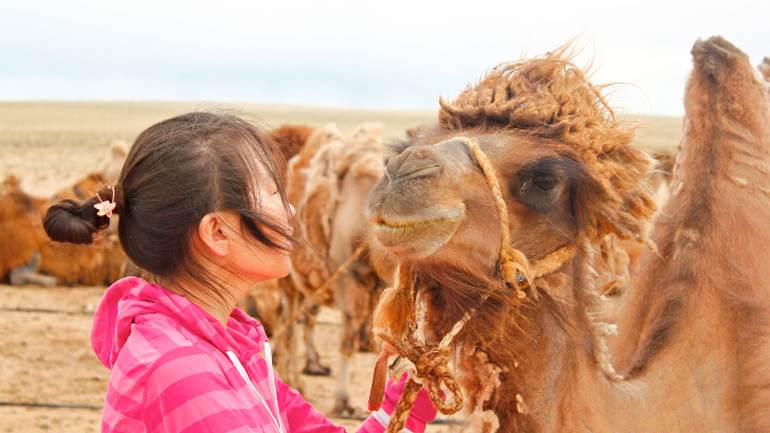Master's degree in Malmö led to development work in Mongolia
From the Gobi Desert in Mongolia, where she was born and raised into a family of nomadic camel herders, Chantsalnyam Luvsandorj has come a long way, in both miles travelled and personal development. And part of that journey included completing the Leadership for Sustainability Master’s Programme at Malmö University.
She is now back in Ulaanbaatar, the capital of Mongolia, where she is trying to put in to practise what she learned from her education in the face of a tsunami of acute societal issues.
She moved to Malmö, along with her husband and two children, “no big deal when you come from a nomadic background”. And headed back to her native country after graduating. She has now held a number of roles with the Ulaanbaatar Green Affordable Housing and Resilient Urban Renewal Sector Project, where she currently supports, along with her team, the coordination of the project.
Green housing solutions
Its aim is to deliver green and affordable housing in the ger areas – districts located on hills and mountains surrounding the city – which suffer from poor infrastructure, extreme pollution, and a total lack of basic services, such as heating and running water.
“The city expanded rapidly over the last twenty to thirty years when people moved there for economic reasons. The sudden influx put huge strain on the infrastructures of the city. Homes are not connected to the heating, water or sewer systems. This means they are often heated by coal fires creating pollution issues.
“The city is the coldest capital city in the world and where half the country’s population lives. In the winter temperatures are around minus 30c and coal is the usual fuel, but people have to burn whatever they can find to stay warm,” explains Chantsalnyam.
Education in Malmö was crucial
She believes her education at Malmö University was pivotal to her getting the role she now has. The master’s programme was her first opportunity to study in English which opened up the English-speaking job market. The programme’s project management and the sustainability courses have proved to be core skills she now utilises on a daily basis.
Chantsalnyam describes the housing project, funded by the Asian Development Bank and Green Climate Fund, as challenging but exciting in a city with myriad issues.
“There is heavy traffic, because the public transport is not good, so we are reliant on individual cars. The city is not equipped enough to monitor the quality of the air and cancer rates are rising rapidly. It feels like we are in crisis mode.”
Climate change affects
A recent disaster encompasses many of the city’s issues: poor infrastructure, substandard housing and increasing snowfall caused by climate change. A truck carrying 60 tonnes of liquefied petroleum gas was hit by a jeep on icy roads which led to three huge explosions. As a result, an apartment block was destroyed and three firefighters were killed, with many others injured.
“It’s the situation we see because nothing is made or designed to withstand that. What was an accident became a disaster. With the heavy pollution and health situation, people are very worried about the future of the country. I am happy to be given the opportunity to improve the situation, but we are too small to address the problem. We need to persevere and encourage more civic activism and civic engagement,” she explains.









